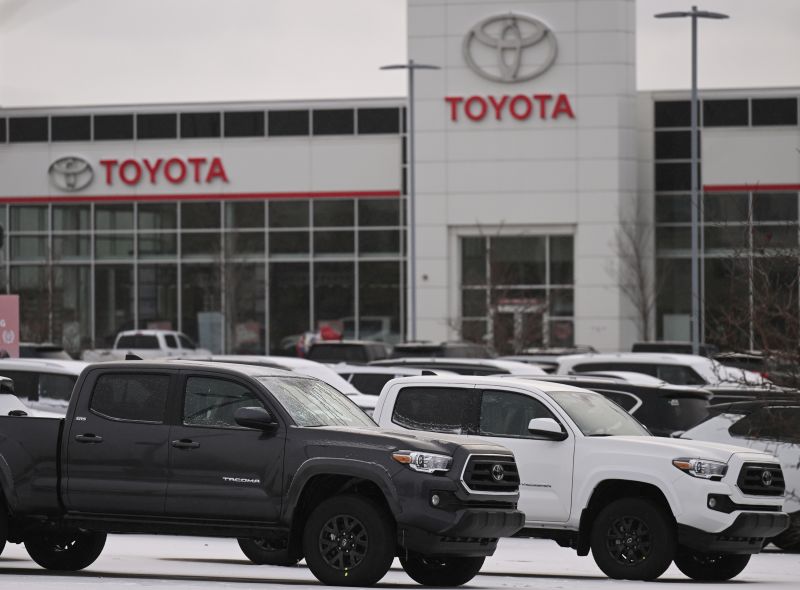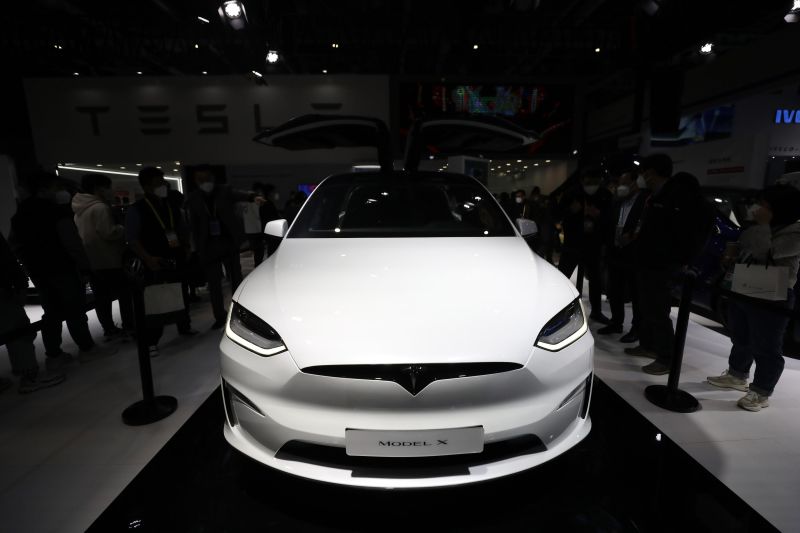
Daihatsu, the Japanese car manufacturer under the ownership of Toyota, has ceased production in Japan after acknowledging that it had been falsifying vehicle safety test results for over three decades.
The company, renowned for its production of small passenger cars, has suspended operations at all four of its Japanese facilities since Tuesday, including one at its corporate headquarters in Osaka, according to a spokesperson speaking to CNN.
The shutdown is expected to continue until the end of January, impacting around 9,000 employees involved in domestic production, as per the representative.
This decision comes as Daihatsu deals with a worsening safety scandal that Toyota claims has deeply affected the company.
Daihatsu recently revealed that an external committee had discovered instances of safety test manipulation on up to 64 vehicle models, which includes models sold under the Toyota brand. In response, Daihatsu has decided to halt all domestic and international vehicle shipments temporarily and will seek guidance from authorities on the next steps.
A view of the Toyota logo and various vehicles on display at a Toyota dealership in Edmonton, Alberta, Canada on October 26, 2023. This photo was taken by Artur Widak/NurPhoto via Getty Images.
Artur Widak/NurPhoto/Getty Images
Toyota recalls 1 million vehicles over airbag sensor glitch
The automaker has faced another setback with this scandal, adding to its previous admission of violating crash test standards on over 88,000 cars, primarily under the Toyota brand in countries like Malaysia and Thailand. According to a statement at the time, Daihatsu failed to meet regulatory requirements for side collision tests while some checks found that the inside lining of the front seat door was improperly modified.
In May, the car manufacturer admitted to additional misconduct, acknowledging that it had provided inaccurate data for crash tests on two hybrid electric vehicles. As a result, the company halted the distribution and sale of these models.
The latest investigation poses a significant risk to the company's image. The investigative committee's report, released last Wednesday, uncovered 174 additional instances of Daihatsu manipulating data, providing false information, or improperly altering vehicles to pass safety certification tests.
The earliest case can be traced back to 1989, and there has been a significant increase in the number of cases since 2014, according to the report.
Following the news, Toyota shares fell 4% in Tokyo last Thursday. However, the stock has since recovered some of its losses.
The Tesla Model X is showcased at the 5th China International Import Expo (CIIE) at the National Exhibition and Convention Center (Shanghai) on November 5, 2022 in Shanghai, China.
Visual China Group/Getty Images
Tesla recalls over 120,000 cars over door risks
In response, the large Japanese company has committed to revamping its subsidiary, stating in a recent announcement that "significant changes are necessary to rejuvenate Daihatsu."
"Revitalizing Daihatsu will be a major undertaking that will take time," Toyota stated, emphasizing that a comprehensive assessment of management, operations, and the structure of the subsidiary will be necessary.
Toyota acknowledged the serious impact of Daihatsu's negligence in the certification process, which has detrimentally affected the company's reputation as an automobile manufacturer. This report includes contributions from CNN's Emiko Jozuka.















